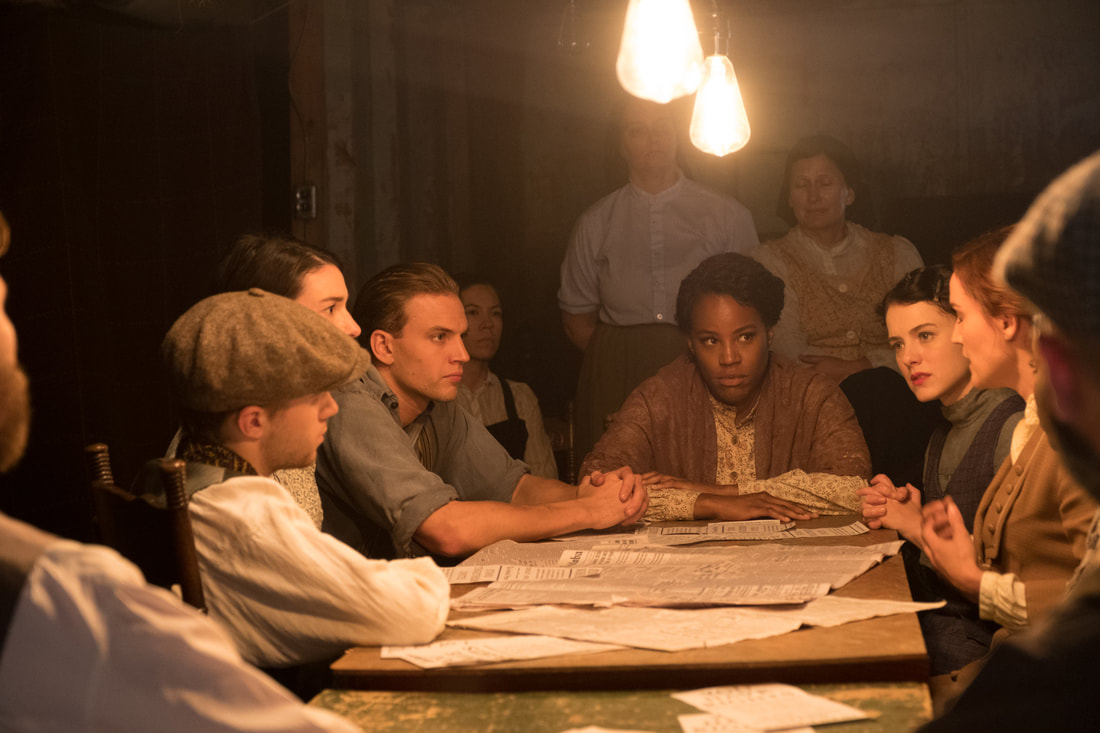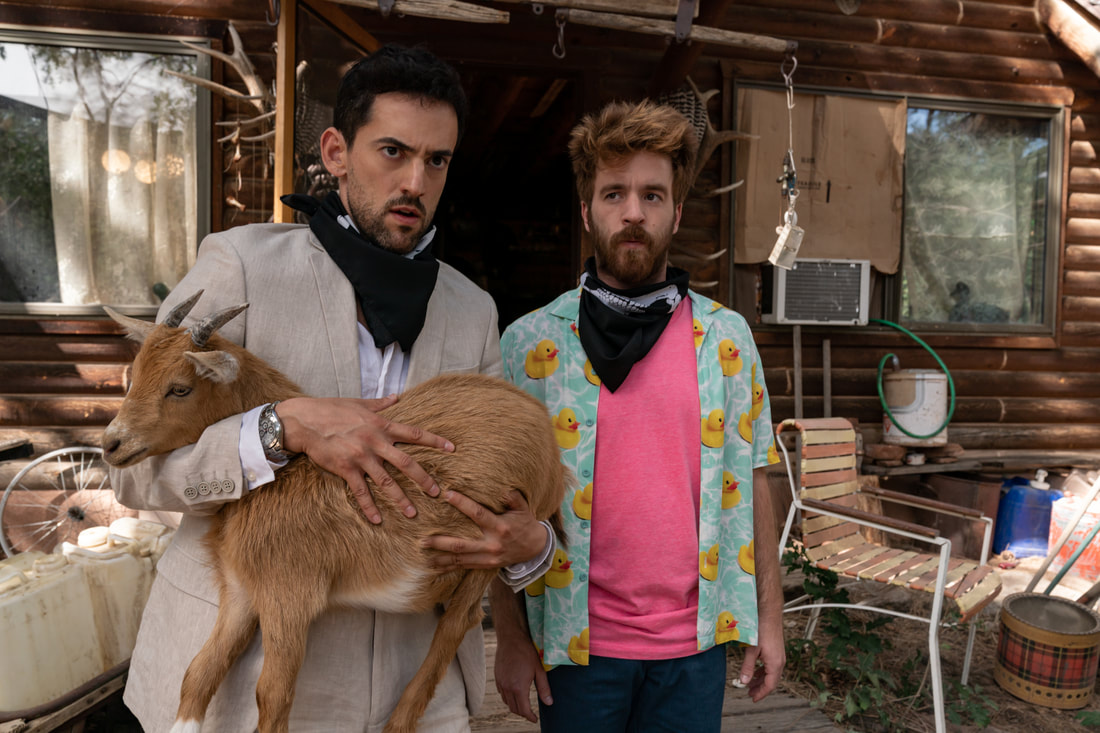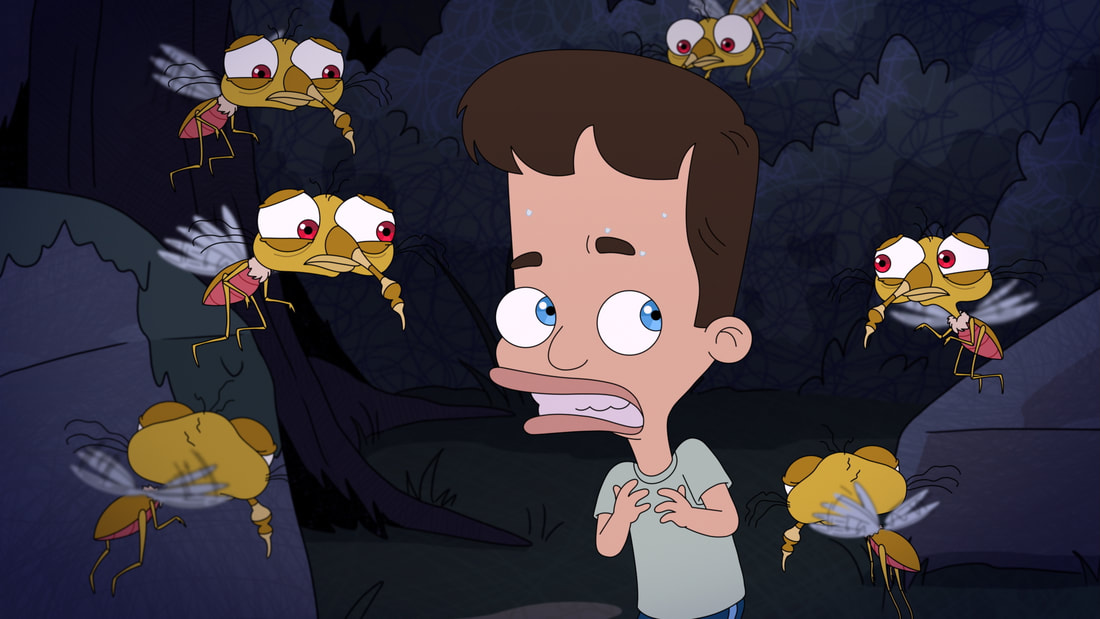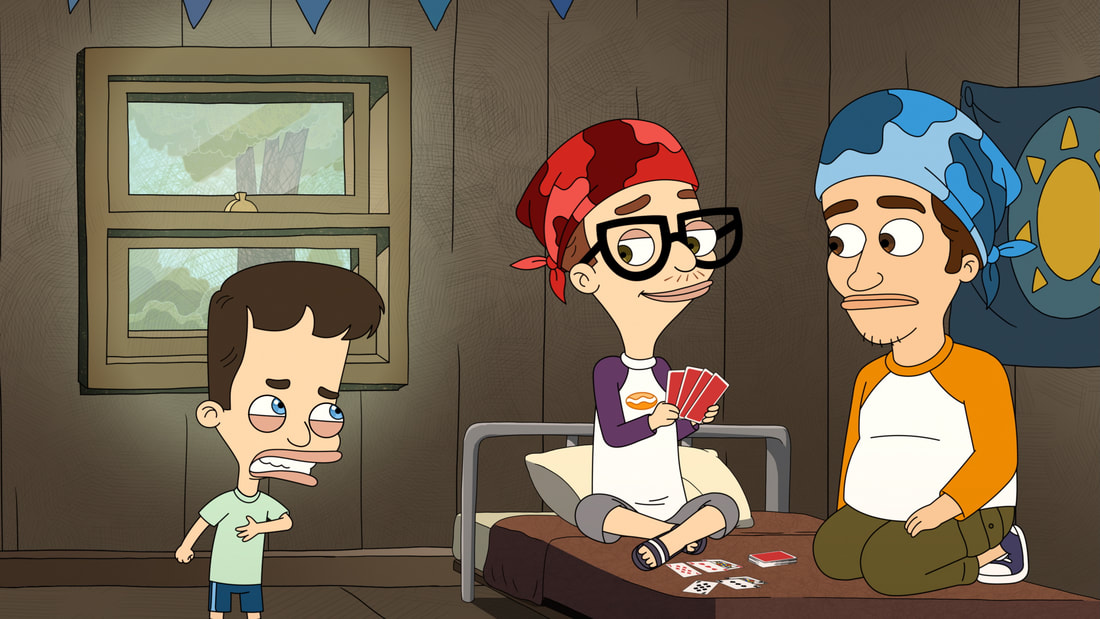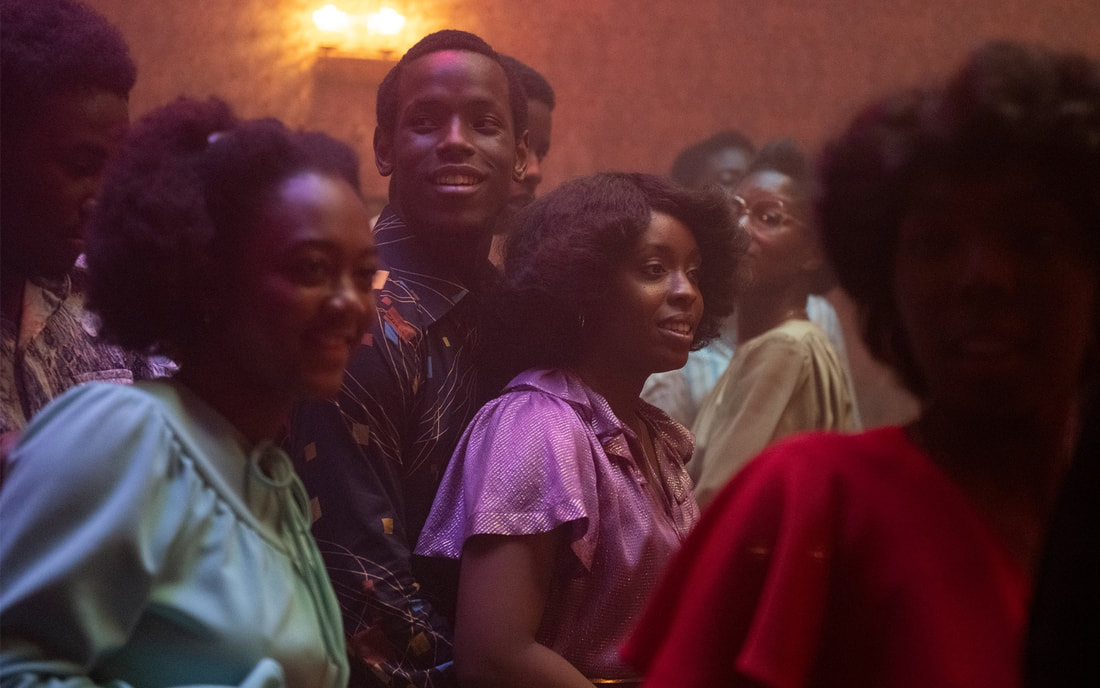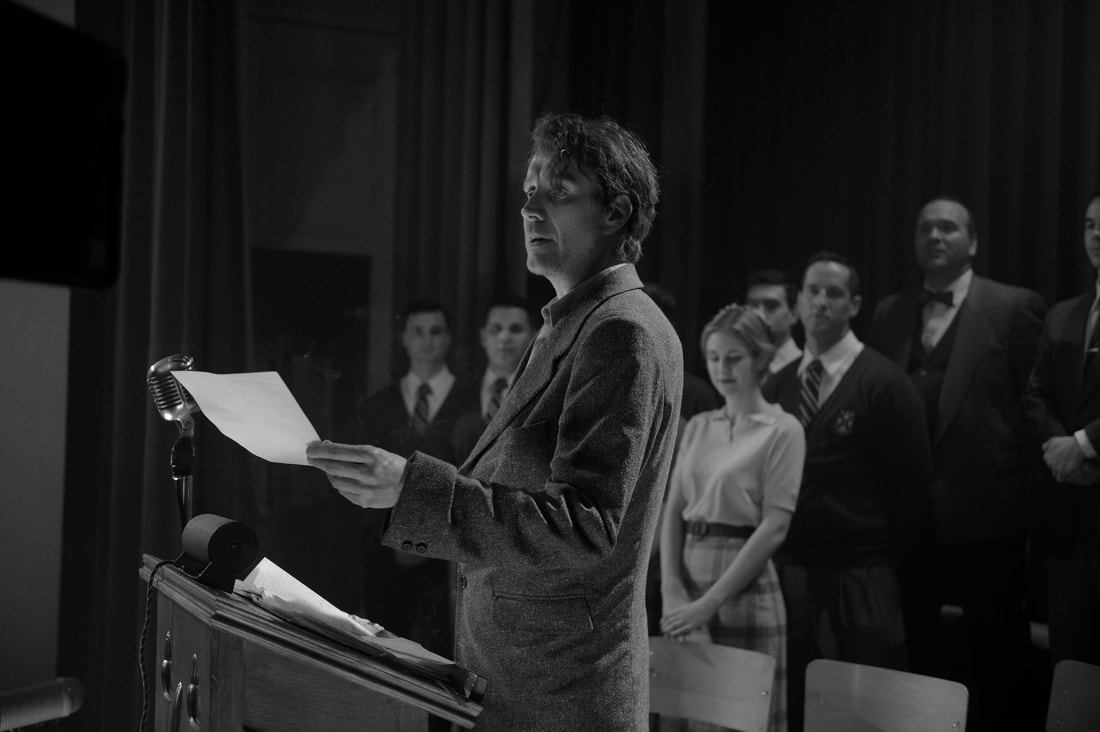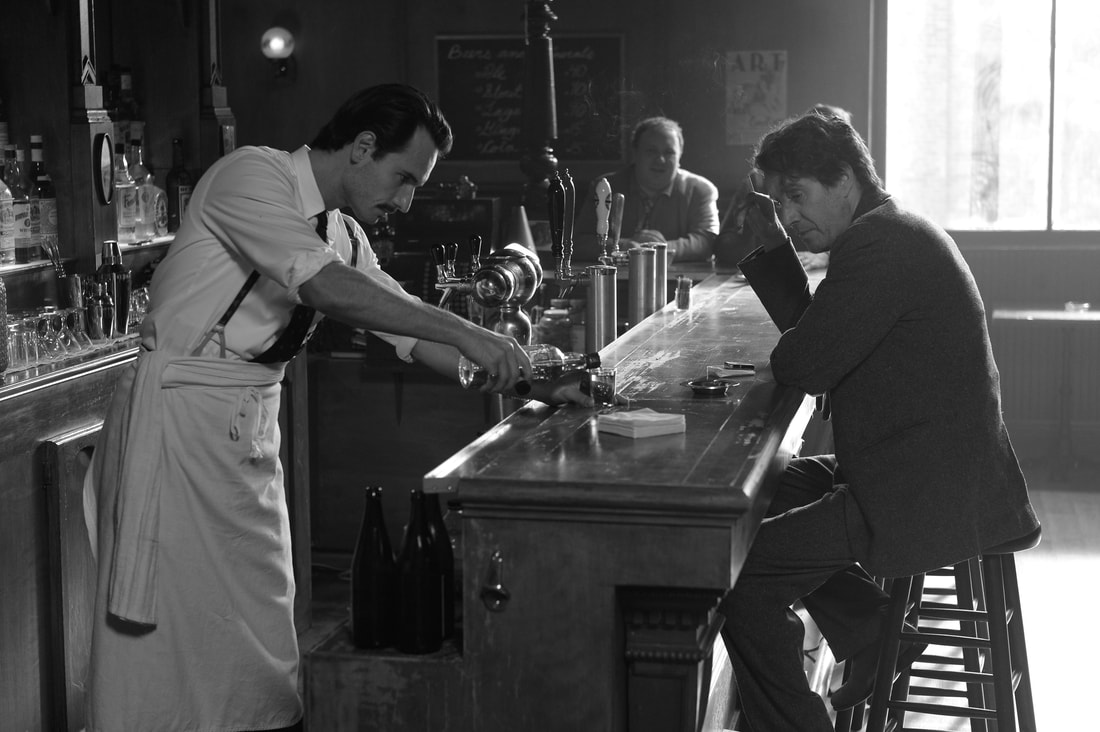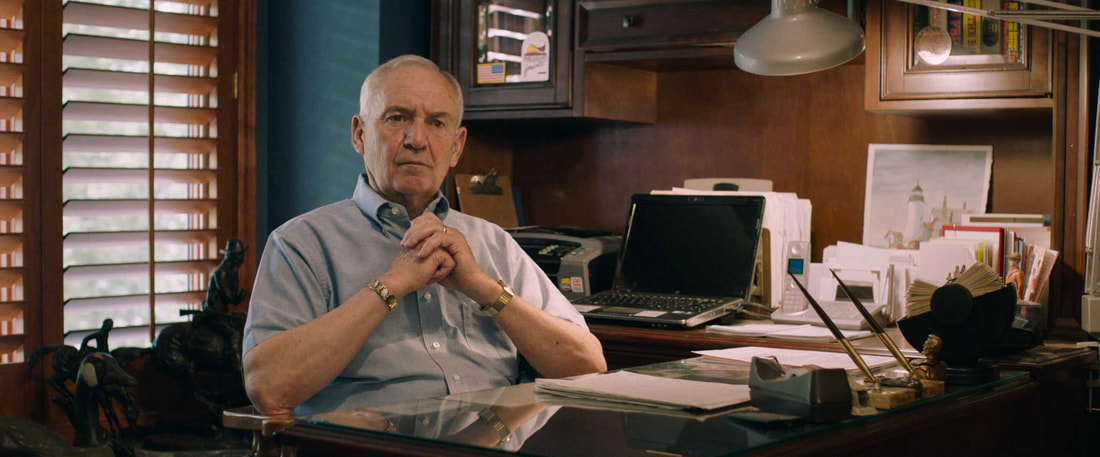|
Review by Sean Boelman
Javier Polo’s documentary The Mystery of the Pink Flamingo is seemingly designed to challenge the audience’s preconceptions, and the result is enormously entertaining. And while the film is manic and disorganized, this overwhelming energy is fitting given the quirky world into which the movie dives.
The film follows a sound designer who, becoming frustrated with the mundanities of his reserved life, embarks on a deep dive into the culture of kitsch and the icons that have come to represent it. The movie aims big, as the topic of kitsch is very expansive and encompasses a lot of ideas involving counterculture at large, but Polo’s wacky approach is mostly effective. In trying to balance the different sides of this story, Polo weaves a complex narrative that doesn’t always come together. However, as the film moves along, it becomes clear how his journey of self-discovery and his investigation of kitsch overlap, resulting in a lot of very funny and occasionally even some surprisingly resonant moments. There have been plenty of documentaries exploring different subcultures, and admittedly, this doesn’t add much new in terms of themes. Still, as an ode to self-expression and embracing one’s own weirdness, it’s quite good. And of course, the movie is fittingly idiosyncratic, living up to the unabashed zaniness of the people it depicts.
The film’s subject, Rigo Pex, is developed unusually. There’s obviously a certain level of self-awareness to the movie, as voiceover narration to what seems to be moderately-staged reenactments make up much of the story, but the change that he experiences feels very authentic and moving.
Additionally, the film features interviews with a variety of people involved in kitsch, from collectors who have a passion for the eponymous symbol to famous figures who are known for their work in the movement, like John Waters and Allee Willis. These interviews offer some interesting insight into something that people wouldn’t even think about. There is a particular vitality to the movie that is quite infectious. The visuals of the film feature some great animation in addition to the brightly-colored cinematography that creates the atmosphere. Additionally, since the movie is so fundamentally tied to sound, it features some really interesting sound design, from sound effects to a gloriously weird soundtrack. The Mystery of the Pink Flamingo takes an unusual topic and develops it in a way that is satisfyingly unique. On paper, it’s a story that you wouldn’t expect to be particularly cinematic, but director Javier Polo does a great job of making something fascinating. The Mystery of the Pink Flamingo hits VOD on December 1. Rating: 4/5
0 Comments
Review by Sean Boelman
It seems unlikely that any movie musical fans are clamoring for a cheap-looking Newsies knock-off, but that is exactly what Robert Adetuyi made. The utterly forgettable Stand! features mediocre musical numbers, scant characterization, and weak commentary, making it a frustrating waste of the genre’s magic.
The film is a Romeo and Juliet story set against the background of a labor movement that sees workers going on strike in an attempt to secure better working conditions. The issue comes in with the fact that both this premise and these themes have been done more effectively before. But unlike Newsies, the movie lacks an emotional connection, and unlike West Side Story, its message doesn’t feel particularly fitting to the trope The pacing of this film is an absolute nightmare. The movie stretches on for what seems like forever, even though it is only an hour and fifty minutes long, a runtime which isn’t beyond normal. The musical numbers are spaced out with spoken dialogue scenes that struggle to keep up the rhythm, much less create an investment in the story. Perhaps even more damning is the fact that the songs can’t seem to settle on a particular tone. Although there have been some recent musicals that have had success incorporating other styles of music into their soundtrack, the songs in this often feel like show tunes that desperately want to be something more than they are.
And while independent musicals aren’t necessarily a bad thing, they are best when they realize that they are made on a shoestring budget. Adetuyi obviously wants to do something more ambitious despite his limited resources, and while he should definitely be given props for trying to do something interesting, it rarely ever pays off.
Based on the (even more generically-titled) stage musical Strike!, itself based on a true story, one can’t help but feel like Adetuyi’s film is too toothless to have much of an impact. This little-known story had the potential to become something exceptional, but is weighed down by familiar beats, trapping it in a box of its own genericism. The movie also struggles with its character development. Such a large ensemble may work better on stage, but in a film, it is important to have an emotional bond with the characters. For the stage-to-screen adaptation, it would have been beneficial for the writers to hone in their story on the perspective of one or two of the heroes. Stand! is an altogether unpleasant movie musical. The songs are passable at best and laughable at worst, it misses all of its emotional beats, and worst of all, it simply isn’t entertaining. Stand! screens in theaters for one night only on December 1. Rating: 2/5
Review by Sean Boelman
Mexican comedy films are a particular taste, and while these movies do have their detractors, they consistently manage to bring their audience in with a pitch-perfect balance of laughs and hearts. Luke Greenfield’s Half Brothers may be an Americanization of these ideas, but it will serve as a solid entry point for those unfamiliar with the style.
The film follows a wealthy Mexican businessman who learns that he has an American half-brother when they are sent on a cross-country road trip inspired by their father’s emigration to the United States. Yet even though the movie mostly deals in tried-and-true tropes, it brings a refreshing perspective to the table. As is the case with most films of this style, the first two thirds are largely goofy and comedic, and then the third act brings it home with a sentimental (but not quite sappy) redemption story. It’s obvious how the movie shoots for the easy emotional targets, but it’s not hard to fall for its heartwarming charms. If the film does come up significantly short in one regard, it is the fact that all the elements are there for this to be an intriguing commentary on immigration. Every time it seems like the movie is going to hit hard on this important issue, it pulls back on its punch, as if it is afraid of alienating white audiences.
The dynamic that is built between the two brothers is charming but doesn’t have much in the way of substance. It’s a pretty basic uptight stickler/loose cannon pairing in which the former must learn to let go of his ways and enjoy life. It’s a sympathetic arc, but far from the most original that the writers could have used.
Perhaps the biggest thing working in the favor of the film is the chemistry between stars Luis Gerardo Méndez and Connor Del Rio. Both are funny on their own, but the scenes that the two share together are frequently hilarious. Some of the best moments come when they are in the car together and bounce off of each other’s personalities. Admittedly, the movie is missing a bit of slapstick comedy to bring the laughs home, but there are a few really funny gags. But as is the case with most of the rest of the movie, the gags that are most successful are those which involve both of the actors, not just one of them trying to carry a comedic moment alone. Half Brothers definitely plays it safe more often than it takes a risk, but for a straightforward comedy, it has enough laughs and heart to be lovable. Luis Gerardo Méndez and Connor Del Rio make a great comedic pair, and it would be awesome to see them do something together again. Half Brothers hits theaters on December 4. Rating: 3/5 Review by Adam Donato Would it be weird to say that Big Mouth is like a mash-up of South Park and Sex in the City? Netflix’s original series about middle school pre-teens going through puberty is back with a fourth season. Disregarding the argument of quality, Big Mouth is definitely a matter of taste. For some, the crude and outrageous nature of the subject matter is too much, but for others, it’s the best part. Everyone can relate to going through the awkward experience of puberty and that’s where the show thrives. So get ready for a lot of fast-paced humor and a handful of moments that are so cringe-inducing that you will shield your eyes. Puberty is horrifying, that’s why Big Mouth is about monsters. Season four maintains momentum in the series. There’s a new villain of the season akin to the Shame Wizard and it drives the season. The Anxiety Mosquito is such a clever personification of anxiety and what a place to pick it up, summer camp. Anxiety feels like the logical next step in the franchise as we’ve tackled shame and depression. Speaking of the logical next step, it’s nice to see time actually progressing in this season. Not only has the show delved into the distant future, but moving from 7th grade to 8th grade gives the show opportunities to see how far the characters have come. It doesn’t feel long ago where Nick boldly asked an 8th grader to the dance. It’s just nice to know they have a direction of where they’re going next with the show. One of the shining spots of the new season is the new character pairings. Andrew, Nick, and Jessie are back in full force this season and each of them has solid arcs. Ancillary characters are given more of a spotlight this season and it’s only to the series’ benefit. Missy, Matthew, and Lola each are given time to shine on their own, without the help of the core three. One of the wonderful things about the show is how Coach Steve is always just around. He’s a crucial character because he is probably where a lot of people draw the line on the show as he is the most obnoxious, that is besides Maury. Speaking of Hormone Monsters, Rick makes a solid comeback, while on the other hand, it still feels like Mona does not have much to do. Connie is the most underrated of the Hormone Monsters as she shines in this season. Maury commentates from the side with a lot of jokes, but Connie actually feels like a character who impacts the plot and for that, she is appreciated. Another aspect of the show that is polarizing is the songs. If someone thinks the humor is too obnoxious and they don’t like the songs, then it’s easy to see why they wouldn’t like the show. The songs usually hit, but this season feels as if there are less and they are lacking. Some ancillary characters are given solos and it’s nice to see them have their moment, but besides that, the songs are few and far between, not to mention lacking in comedy. Still, it’s just nice to have a show that features random musical numbers.
Season three’s cliffhanger is handled very well. Going to summer camp was a great idea for this show from the start. It would be great to see the gang return to camp after they finish eighth grade because there is so much that can be done there. Not to mention, the season starts with a musical number akin to the Valentine’s Day episode, which is great for the big fans of the show. When they sing to the audience, as if to say “we know how excited you are”, is such a joy. Next season, it will be interesting to see where they go with everyone as most of the cast leaves the season off in a state of resolve. If one already does not like Big Mouth, this season is more of the same. For returning fans, it’s no better or worse than any season preceding. Filled with plenty of laughs and much to say about the trials of the pubescent experience, Big Mouth season four continues its’ crude legacy. Don’t have anxiety about what’s going to happen to your favorite group of middle schoolers because you can check out the newest season of Big Mouth on Netflix this December. Big Mouth streams on Netflix beginning December 4. All ten episodes reviewed. Rating: 5/5 Review by Dan Skip Allen Lovers Rock is the second film in the Small Axe series from Steve McQueen (12 Years a Slave, Widows). All of these stories including this one are about the West Indies section of London. Like Mangrove before it, Lovers Rock is a period piece set in the 1980s. This island culture explodes on the screen in vivid reality. This film focuses on a group of men and women who all attend a house party that eventually turns violent. Relationships form and the sounds of Bob Marley and the like are flowing from the speakers of the sound system. Martha (Amarah-Jae St. Aubyn) and Franklyn (Michael Ward) are the main characters. A few of their friends also play a significant role in the film. Patty (Shaniqua Okwok), Cynthia (Ellis George), Clifton (Kedar Williams-Stirling), Reggie (Francis Lovehall), and Hammy (Daniel Francis-Swaby) all have interaction with the two main characters throughout the film. Like Mangrove, McQueen captures the feel and aesthetics of the 1980s perfectly. The clothes and hairstyles are spot-on for this decade. The reggae music sets a tone for this film. These songs are synonymous with the West Indies culture in London or anywhere else for that matter. The setting of the house party really gives the audience a chance to get to know these characters. Otherwise, they would be strange to anyone watching. That's a good job by McQueen and the writers. McQueen keeps the camera moving like it was dancing along to all the music he has set at the forefront of this film. As the characters move around we start to see their motivations and character development before our eyes. This party is a respite from their hard lives in London. It only takes them away from the truth of who they are for a little while. Their truths are always permeating the surface just waiting to explode and overflow. As this happens, the film revs up along with the music and dancing. Things start to heat up!
Romance can pop up at any time in life and you have to seize the opportunity when it arises. Even though this romance is a short one, the viewer can feel the love between the two main characters. McQueen guides the viewers through this little moment in 1980's London with grace and the terrific sounds of island music. This anthology has tapped into some interesting aspects of the West Indies culture in London so far. I can't wait to see what aspect he explores next. Lovers Rock is now streaming on Amazon Prime. New installments of Small Axe release on Fridays. Rating: 3.5/5 Review by Dan Skip Allen 'Tis the season to be merry and watch Happiest Season, a new holiday-themed movie on Hulu. Of course, this is the time when all sorts of holiday movies are coming out, and the streaming services are getting into the game as well. Netflix has had some good ones over the last couple of years, but now Hulu is trying to compete with them with their own batch of films. Harper (Mackenzie Davis) and Abby (Kristen Stewart) are a couple who have decided to go to Harper's family's home for Christmas. The problem comes in when Abby realizes that Harper's family doesn't know she's gay because she hasn't told them yet. This causes quite the drama for Abby during family events and parties. This film has quite the supporting cast of characters that make up the family of Davis's character, including Victor Garber and Mary Stienbergin as the parents, Alison Brie and Mary Holland as her sisters, and Aubrey Plaza as an ex-girlfriend. Clea DuVall, primarily an actress, directs this funny holiday film. Her direction is good and includes quite a myriad of comedic moments. This film has a fish out of the water feeling to it most of the time. Stewart's character has quite a few awkward moments. One specifically involves her stealing a necklace. It was supposed to be funny but ended up feeling out-of-place. This film doesn't know if it wants to be a comedy or a drama. Some characters are all in on the comedic moments and some are being straight. These don't mix very well. The secret has shown that the film can just be dramatic. It doesn't need the comedic stuff or the clichéd flamboyantly gay friend. The dramatic moments work and drive the film forward. That's the best part of the film. DuVall as the director and Mary Holland as the screenwriter needed to focus on one or the other, not both.
As a holiday movie, Happiest Season is okay — not great but also not bad. I've seen better in my days. The subject matter is very relevant to the times we live in today. DuVall and Holland probably needed a rewrite or town on the script and maybe a few characters needed to be cut from the story. It definitely has too much going on and takes away from the main story involving Davis and Stewart's characters. But for streaming, it's a fine holiday film. Happiest Season is now streaming on Hulu. Rating: 3/5
Review by Camden Ferrell
You will likely not find a film more ambitious or perplexing than Kill It and Leave This Town. This is the first feature film from director Mariusz Wilczyński, and it is a project that has been developed for the past fifteen years. Even if its themes can feel muddled and meandering at times, this is a unique experience that meditates on death and mortality.
Overcome with grief and despair after the loss of those dearest to him, our protagonist hides in the bowels of his memory. He revisits his parents, friends, and the life he once led. Describing the premise as such doesn’t nearly prepare the viewer for the absurdity of this movie. It takes its interesting premise and turns it into something utterly inexplicable. The writing might be the weakest link in the film. There are many dialogue free moments that work really well, but some of the dialogue doesn’t always land properly. There are some really touching and resonant exchanges and conversations, but it can also come off as contrived at times. The characters themselves are fascinating. Supplemented by a talented cast, these characters feel tangibly relatable. Regardless of the vulgar animation and haunting visuals, it truly feels like we can relate to the characters’ pain, longing, and existential dread. It’s not comforting at all, but it’s weirdly familiar in abstract ways. This is one of the film’s strong suits, and it deftly creates an environment that rings a bell somewhere in our mind.
One of the most discernible aspects of the film is its animation style. It’s crude, vulgar, and shocking, and it all works so well in context of the film. The animation style illuminates the messages and themes so well, and it is a visual spectacle even if it can be hard to watch at times. It blends its haunting animation with some poignant imagery and a hefty dose of shock value that make it a unique visual achievement.
The film also boasts some great music throughout featuring some assertive electric guitar riffs. It is almost evocative of some of the trippy soundtrack in Fantastic Planet. Unfortunately, this movie can also be a little too ambitious for its own good. Certain scenes and moments significantly drag and create a lot of confusion. While the whole film is somewhat incoherent by design, there are some moments that feel wholly unnecessary. Despite any flaws, the movie still proves to be a memorable experience that meditates on the human condition with stunning artistry. Many films tackle mortality, longing, and death, but so few can properly encapsulate those themes and blend it with a surrealist touch like Wilczyński. This movie is not for everyone, but it is ultimately a rewarding experience. Kill It and Leave This Town may necessitate repeat viewings to be properly appreciated. It’s a film that is ambitious and rewards audience reflection and patience. It’s run time is brief, but it’s a film that takes you on the journey of one man and the life he is trying to relive and recapture. Kill It and Leave This Town is available to stream November 25 to December 8 from Anthology Film Archives. Rating: 3.5/5
Review by Sean Boelman
Gabriel Range’s Stardust has received a lot of heat from David Bowie fans for being an unauthorized biopic of the late musician, and while the limitations caused by that are evident, it still manages to be mostly passable. Ultimately, it works best as a run-of-the-mill rock movie and less so as an exploration of the life of a brilliant artist.
The film follows David Bowie as he goes on his first tour in the United States, which would come to be an experience integral to the formation of his on-stage persona. One thing that viewers will immediately notice is that the film features none of Bowie’s music, and the real reason why is that his family wouldn’t clear any of the rights. It takes some mental gymnastics for the film to justify it, but the reason it comes down to involves an incorrectly classified visa. As such, much of the film takes the form of a series of junket interviews in which Bowie and some journalists discuss his philosophies in life and performing. It can get a bit monotonous at times, but the conversations are interesting and thoughtful enough to keep the film moving along at a mostly solid pace. The more frustrating part of the film is the behind-the-scenes drama which feels both extremely straightforward and disappointingly underwritten. Since rights issues prevented the audience from using this film to see Bowie as a performer, one would have hoped that the film would at least provide a deeper portrait of him as a person.
Instead, the film makes the unorthodox decision of using Bowie’s publicist as the true protagonist of the film. Although Bowie’s arc of coming into his own as an artist is compelling, the omission of his musical career presents an insurmountable obstacle in an emotional sense. On the other hand, the publicist’s story is much more grounded, even if the impact is limited by his lower profile.
Johnny Flynn’s performance as Bowie is solid but lacks the nuance that elevated other recent rock biopic leading turns. It often feels like Flynn is simply doing an impression, and while he nails a lot of the personality and mannerisms, he doesn’t bring anything extra to the emotional moments. Marc Maron is a standout in his central role, but rightfully doesn’t steal the show from Flynn. Jena Malone is wasted with a small and nearly insignificant part. The opening sequence of the film is quite beautiful and sets a strong bar for the rest of the film to meet. Unfortunately, Range is never quite able to reach those astronomical heights again, settling for a competent but safe approach which feels a bit too conventional for someone that was known for challenging taboos and preconceptions. Filmmaker Gabriel Range managed to pick up all the pieces to make Stardust into something enjoyable despite the slew of factors working against it. It may not be the great Bowie biopic we all wanted, but it also isn’t deserving of the hostilities that have been aimed towards it. Stardust hits theaters and VOD on November 25. Rating: 3.5/5
Review by Sean Boelman
There is no denying that Dylan Thomas is one of the most brilliant poets of all time, and so a film about the final days of his life sounds like an interesting prospect. And while Last Call is a very unique movie, in trying to make something more ambitious and poetic, filmmaker Steven Bernstein loses track of what made his subject so notable in the first place.
The film tells a fictional version of the days preceding the death of Dylan Thomas, as he drinks heavily and recalls various events in his life. For better or worse, it is made pretty clear early on that this is not a literal biopic, but an interpretation of his life through the lens of his words and the body of work that he created. One of the most obvious shortcomings of the movie is that it lacks an overall feeling of consistency. At times, it seems as if Bernstein is trying to present a more subjective view of Thomas’s life, and then there will be a scene that doesn’t involve Thomas at all. Other portions struggle to find a balance between expressive and grounded. The narrative structure which Bernstein chooses to go with for the film is also messy and uneven. As is the case with many movies that take place in the final days of someone’s life, the story is reliant on flashbacks to paint a more comprehensive portrait of its subject, and because of this, the framing device ends up feeling like a gimmick.
It too often feels like Bernstein is trying to be profound with his film. Much of the power of Thomas’s work comes from the fact that his writing is very natural and meaningful. Bernstein’s script, on the other hand, tries to force meaning into conversations made up of dialogue that is wooden and overly literary.
That isn’t to say that the movie is entirely unsuccessful — there are more than a few scenes that work quite well. But for every moment that asks an intriguing question about some of the themes that Thomas explored in his work, there is one that is disappointingly shallow or even empty. Still, Bernstein does some interesting things with the film. The black-and-white cinematography is gorgeous and creates an atmosphere that immediately brings to mind beatnik culture. Additionally, the performances are all pretty strong. Rhys Ifans is good (albeit stagey) as the drained poet, and John Malkovich and Tony Hale are both memorable in their supporting parts. Much of what makes Last Call so frustrating is the fact that its script is so indecisive. There are some great moments, but most of the movie can’t decide what it wants to be, and as a result, it begins to ramble. Last Call opens in theaters on November 25. Rating: 3/5
Review by Camden Ferrell
The Mystery of D.B. Cooper is the newest film from director John Dower. Its subject and events have gained fame and elevated into legendary status since 1971. While this movie occasionally stumbles in its exploration of these events, it is still an interesting and mysterious look into one of the world’s most perplexing hijackings.
This film explores the legacy and potential suspects in the only unsolved act of air piracy in U.S. history. Someone under the titular pseudonym disappeared by jumping off a plane with a parachute with $200,000 and has not been found since. The documentary looks at four possible suspects and the evidence for each one. It’s a fascinating premise that serves as great source material for the movie. Dower uses a combination of archive footage, interviews, and reenactments, and it’s a blend that works very well. He avoids the common mistake of overusing any specific type of footage, and he instead layers them over each other for more narrative coherence and flow. This seems the be a skill that Dower has honed over his career, and it benefits the film greatly. The interviews have fairly interesting subjects that each have a unique contribution to the mystery surrounding these events. They have great evidence and anecdotal experience that is as interesting as it is unpredictable. Even if they aren’t remarkably captivating, these interviewees do prove to be essential to the film.
The main flaw of this film comes from the fact it seems to squander the potential of its story. This hijacking may be one of the most interesting heists of which I have ever heard, and the documentary isn’t nearly as sensational as it could have been. Not to say that it’s bland, but that it never achieves the greatness that it could have.
The movie still manages to feel fresh throughout despite its flaws, and it is a very fast-paced film that doesn’t waste any of its sub-90-minute runtime. It tells the story of the heist and intercuts it with the four possible suspects, and it prevents the movie from dragging too much or feeling dull. It maintains its tone and pace quite well and that is a testament to Dower’s ability as a filmmaker. One thing this movie doesn’t provide is closure. Obviously, the title should indicate that, but it is a mystery that raises more questions than it answers. There’s an oddly satisfying ambiguity in the lack of resolution that helps consign this hijacking to legend. The Mystery of D.B. Cooper is an interesting exploration into a famous hijacking. It uses a variety of material to tell its story in an entertaining matter. This is a documentary that will appeal to those interesting in crime documentaries and unexplained mysteries. The Mystery of D.B. Cooper premieres on HBO and HBO Max November 25. Rating: 3.5/5 |
Archives
July 2024
Authors
All
|
|
|
disappointment media
Dedicated to unique and diverse perspectives on cinema! |



